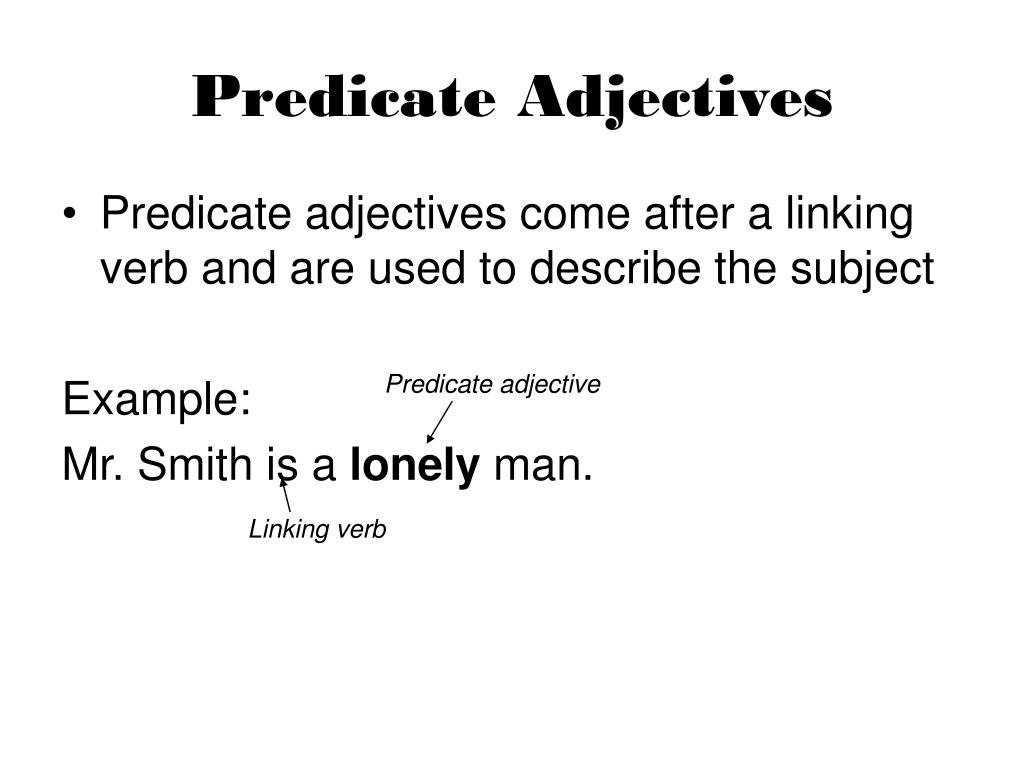
“A zombie” is still a noun phrase, not an adjective. In the example above, we’ve traded the action verb for a linking verb, but we still have a problem. Now, let’s take one of the sentences above and alter it slightly. Neither criteria for a predicate adjective is met. Plus, “becomes” functions as an action verb in the second sentence, so the noun phrase does not follow a linking verb.

First of all, “zombie” is not an adjective it’s a noun. Obviously, “zombie” is not a predicate adjective. In the following sentences, notice how the word “become” functions as both a linking verb and an action verb. Predicate adjectives do not appear after action verbs. For example, someone can taste an object, smell an object, or become an object. Some linking verbs operate as action verbs, as well, depending on their context. “Dull” functions as a predicate adjective. “Did” is an auxiliary verb, and “seem” is a linking verb. In the sentence above,”the lesson” is the complete subject. Sometimes, these linking verbs combine with auxiliary verbs to form serial verbs, also called compound verbs, such as “shall taste” or “would remain.” Serial verbs often function as linking verbs when they include one of the linking verbs listed above. Some of the most common linking verbs include: Since we know that predicate adjectives always appear after linking verbs, it can be useful to understand more about linking verbs and how to identify them. In contrast, the second sentence includes the word “spicy” as part of the complete subject, “the spicy soup.” Therefore, “spicy” acts as an attributive adjective in the second sentence and a predicate adjective in the first sentence. In the first sentence, the adjective “spicy” comes after a linking verb in the predicate.

Let’s explore the difference between the two types of adjectives.īoth sentences use the word “spicy” to describe the subject of the sentence, the soup. An attributive adjective also modifies the subject, but it appears in a different area of the sentence, as part of the complete subject. Unlike attributive adjectives, they appear after a linking verb.

What Is a Predicate Adjective?Ī predicate adjective modifies the subject of a sentence. After learning about this part of speech and seeing examples in context, you’ll have the chance to test your knowledge with an interactive exercise. Within this article, we will give you the tools to identify predicate adjectives whenever they occur.

The subject of the sentence is “she,” and the predicate consists of the phrase “is blue.” Since the word “blue” is an adjective and shows up in the predicate, then it stands to reason that “blue” is a predicate adjective. In the example above, the word “blue” functions as a predicate adjective.


 0 kommentar(er)
0 kommentar(er)
